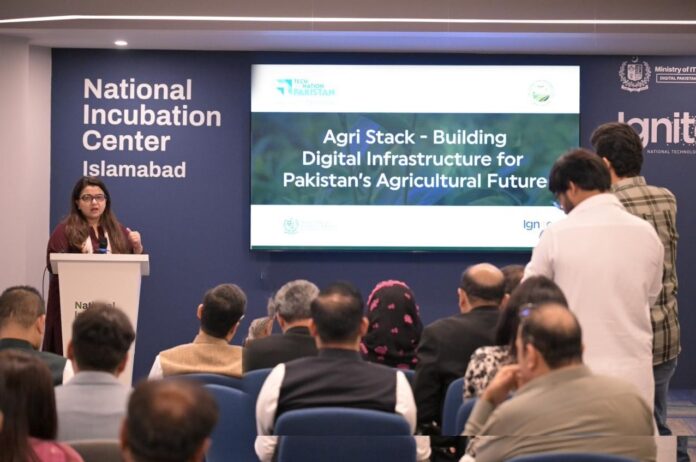Govt Launches 'Agri Stack' to Transform Farming

Introduction to Agri Stack: A Digital Revolution in Pakistan’s Agriculture
Pakistan has taken a significant step towards modernizing its agricultural sector with the launch of a groundbreaking initiative known as Agri Stack. This digital platform aims to transform traditional farming practices by introducing advanced technological solutions that empower farmers, streamline services, and improve overall efficiency in the agricultural value chain.
The initiative is spearheaded by the Ministry of IT and Telecommunication, with collaboration from other key stakeholders such as the Ministry of National Food Security, LIMS (Lahore Institute of Management Sciences), and SIFC (Sustainable Irrigation and Farming Center). The government's vision is to create a more transparent, efficient, and resilient agricultural system through the use of digital tools and data-driven decision-making.
Addressing Key Challenges in Farming
Federal Minister Shaza Fatima Khawaja emphasized that Agri Stack will tackle some of the most pressing issues faced by farmers. These include the lack of verified farmer identities, limited access to credit, and inefficient subsidy distribution systems. By addressing these challenges, the initiative seeks to enhance the livelihoods of farmers and ensure fairer access to resources.
One of the core features of Agri Stack is the creation of verified digital identities for farmers. This will not only help in streamlining subsidies but also in linking land records to individual farmers, ensuring that they receive the benefits they are entitled to. Additionally, the platform will provide advisory services through technology, enabling farmers to make informed decisions based on real-time data.
Role of LIMS and Data Integration
DG LIMS Maj Gen (R) Ayub Ahsan Bhatti described Agri Stack as a game-changer, particularly for small-scale farmers who often face systemic barriers. He highlighted that the system will support better policy decisions by providing accurate and timely data. LIMS will act as the central data hub, integrating farm-level information from various sources.
This integration will serve multiple stakeholders, including the government, agri-tech companies, and farmers themselves. By creating a unified data ecosystem, Agri Stack aims to foster collaboration and drive innovation in the agricultural sector.
Key Features of Agri Stack
Agri Stack comes equipped with several advanced features designed to enhance the efficiency and effectiveness of agricultural operations. These include:
- Satellite-based crop monitoring: Using satellite technology, the platform will track crop health, monitor soil conditions, and predict yields, allowing farmers to take proactive measures.
- Digital payment tools: These tools will facilitate seamless transactions between farmers, suppliers, and buyers, reducing the reliance on cash and minimizing fraud.
- Market access platforms: Farmers will have access to broader markets through online platforms, helping them sell their produce at competitive prices.
- Secure data-sharing systems: Ensuring data privacy and security is a top priority. The system will allow secure sharing of information among stakeholders without compromising sensitive data.
Governance and Implementation
To ensure the successful implementation of Agri Stack, a Steering Committee and a Technical Working Group have been established. These bodies will oversee the development and execution of the initiative, ensuring that it meets the needs of all stakeholders.
Pilot projects are set to begin soon, focusing on testing key services such as weather-based crop insurance and smart subsidy distribution. These pilot programs will provide valuable insights into the effectiveness of the platform and help refine its features before a full-scale rollout.
Future Outlook and Goals
Over the next 12 to 18 months, the government plans to roll out pilot programs across different regions of Pakistan. Success will be measured through predefined milestones, including increased adoption rates, improved service delivery, and enhanced transparency in the agricultural sector.
Officials believe that Agri Stack will not only boost productivity but also enable innovation and make agriculture more resilient to climate change and market fluctuations. As Pakistan moves toward a fully digitized farming future, the initiative represents a bold step forward in leveraging technology for sustainable development.

Comments
Post a Comment